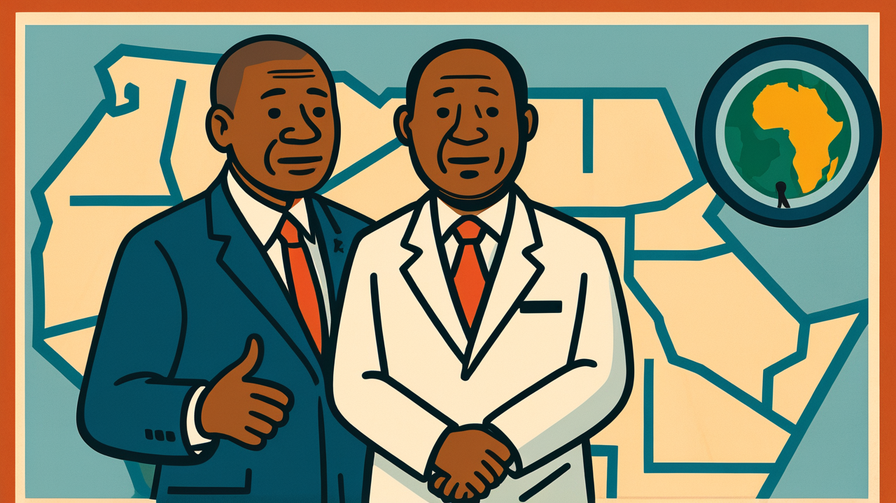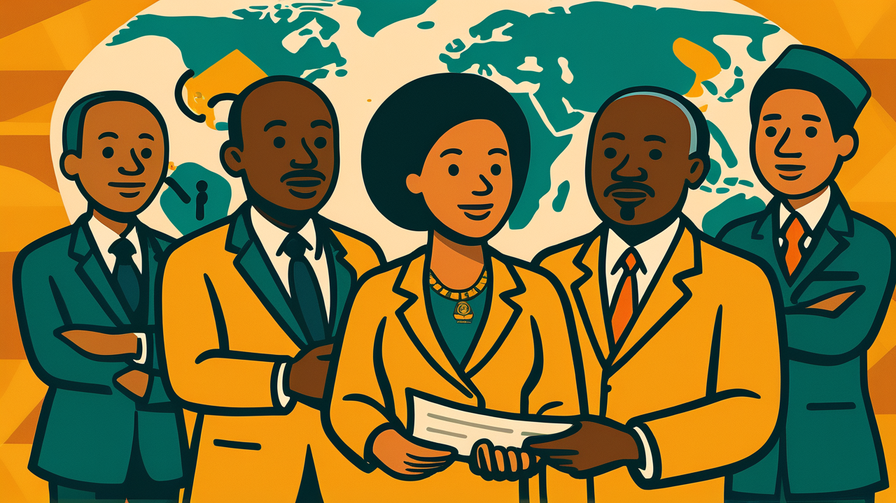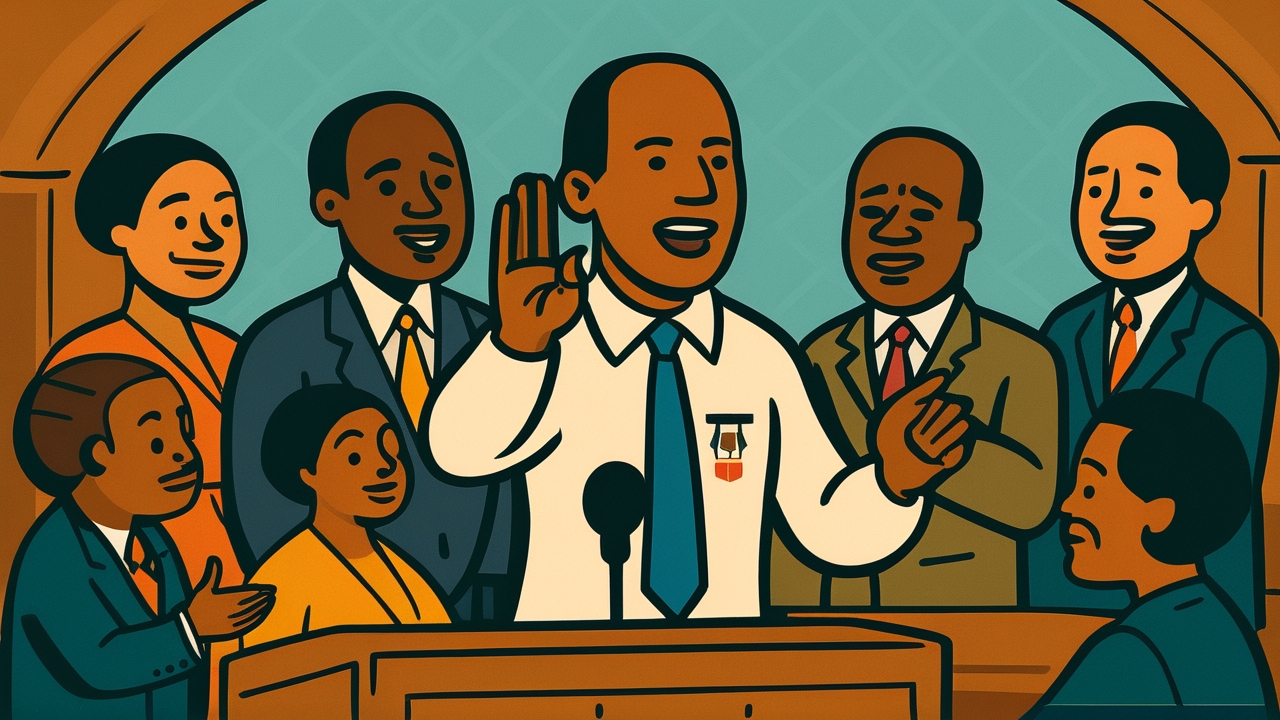[Disclaimer] This article is reconstructed based on information from external sources. Please verify the original source before referring to this content.
News Summary
The following content was published online. A translated summary is presented below. See the source for details.
President Trump’s recent comments about the English-speaking abilities of Liberia’s President have triggered a wave of responses across African social media platforms. During a diplomatic meeting, Trump reportedly made remarks suggesting surprise at how well the Liberian leader spoke English, apparently unaware that English is Liberia’s official language and that the country was founded by freed American slaves in the 1800s. The comments quickly went viral on African Twitter, Facebook, and other platforms, with many users expressing frustration at what they perceived as ignorance about African history and linguistic diversity. Liberians particularly took offense, pointing out their country’s unique historical connection to the United States and their long tradition of English as the primary language of government, education, and daily life. The incident has reignited discussions about Western misconceptions of Africa and the importance of cultural awareness in international diplomacy. Many African commentators used the moment to educate global audiences about the continent’s linguistic diversity, which includes over 2,000 languages alongside colonial languages like English, French, and Portuguese.
Source: globalvoices
Our Commentary
Background and Context

Liberia has a unique history among African nations. Founded in 1822 by the American Colonization Society, it was established as a home for freed American slaves. The country’s name literally means “Land of the Free,” and its capital, Monrovia, was named after U.S. President James Monroe. English has been Liberia’s official language since its founding, and the country’s flag closely resembles the American flag with one star instead of fifty. This historical connection makes comments about Liberians’ English proficiency particularly ironic and highlights a broader issue of Western ignorance about African nations’ histories and capabilities.
Expert Analysis
Diplomatic experts and African studies scholars view this incident as symptomatic of larger problems in how Western leaders approach African diplomacy. Such comments, while perhaps unintentional, can damage diplomatic relationships and reinforce harmful stereotypes about African capabilities. Language experts note that many African leaders are multilingual, often speaking their local languages, a colonial language, and sometimes additional international languages. This linguistic ability actually exceeds that of many Western leaders who typically speak only one or two languages. The incident underscores the importance of cultural briefings before diplomatic meetings.
Additional Data and Fact Reinforcement
Africa is the world’s most linguistically diverse continent, with over 2,000 distinct languages. Approximately 130 million Africans speak English as a first or second language, making Africa home to some of the world’s largest English-speaking populations. In addition to Liberia, English is an official language in 24 African countries, including Nigeria (with over 200 million people), South Africa, Kenya, and Ghana. Many African universities conduct classes entirely in English, and African writers have won numerous international literary prizes writing in English. Studies show that the average African speaks 3-4 languages, compared to 1.5 languages for the average American.
Related News
This isn’t the first time Western leaders have made controversial comments about Africa. Previous incidents include references to African nations using outdated or offensive terminology, assumptions about technological capabilities, and surprise at modern infrastructure in African cities. These incidents often go viral on African social media, where young, tech-savvy Africans use humor and education to combat stereotypes. The rise of African social media influencers and content creators has given Africans more power to shape their own narratives and challenge Western misconceptions directly.
Summary

President Trump’s comments about the Liberian President’s English have served as a catalyst for important discussions about Western perceptions of Africa. The swift and articulate response from Africans online demonstrates both the power of social media in shaping international dialogue and the continued need for better cultural understanding in diplomacy. This incident reminds us that in our interconnected world, cultural awareness and historical knowledge are essential for effective international relations.
Public Reaction
African Twitter users responded with a mix of humor, frustration, and educational content. Many Liberians shared their country’s history and flag, while others posted videos of African leaders speaking fluent English at international forums. The hashtag #AfricansSpeak began trending, with users sharing stories of their multilingual abilities. Some users created memes comparing the number of languages spoken by African leaders versus American presidents. Educational threads about Africa’s colonial history and linguistic diversity gained hundreds of thousands of views. While some responses were angry, many Africans chose to use humor and facts to address the ignorance they perceived in the comments.
Frequently Asked Questions
Q: Why is English Liberia’s official language?
A: Liberia was founded by freed American slaves in the 1820s, who brought English with them. The country has maintained English as its official language ever since, though many Liberians also speak indigenous languages.
Q: How many African countries have English as an official language?
A: Twenty-four African countries list English as an official or primary language, mostly former British colonies plus Liberia, which has American historical connections.
Q: Is it common for African leaders to speak multiple languages?
A: Yes! Most African leaders speak at least 2-3 languages, often including their ethnic language, their country’s official language, and sometimes additional international languages. This multilingualism is common across Africa.


